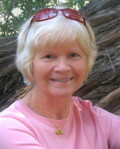Topics and Questions for Discussion
Use this guide to facilitate your library group or book club’s conversation.
1. Clifton often includes quotes from Choctaw myth and folklore in her Sam Chitto mystery series. However, this book opens with a quote from A. A. Milne’s Winnie the Pooh that deals with pretense:
“Hello Rabbit,” he said, “is that you?”
“Let’s pretend it isn’t,” said Rabbit, “and see what happens.”
How does this quote set up one of the main themes in the story, which deals with false identities, deception, and fraud? Discuss how the book’s title, Five-Dollar Indian, plays a central role in supporting this theme.
2. In the last chapter, Eli Billy states “Life’s not a pretend game of make believe” with regard to local men who got caught up in a get-rich-quick scheme. Discuss how the beginning quote and Eli’s final assessment serve as bookends to the main theme. List other examples of falseness presented in the story. Many references are made to movies and TV shows; name some of them and discuss how their inclusion supports the idea that fact is fact and fiction is fiction?
3. Not only Sam Chitto but other lawmen struggle with personal issues that challenge their resolve to walk the thin blue line, a phrase that refers figuratively to the role of lawmen holding back chaos. But lawmen are human and prone to human failings. Sam wants retribution for the gangland killing of his father. Eli Billy is torn between defending family and friends and protecting their abused wives and their children. Dan Blackfox wants to safeguard his old friend and comrade in arms, Thomas Iron Cloud. And Thomas Iron Cloud wants to personally administer justice for the death his grandson. Discuss whether each of these lawmen was able to stay on the thin blue line. If so, how? If not, did the decision they made maintain their dignity or earn them disgrace?
4. The settings mentioned in the book include The Timbers, located in central and southeastern Oklahoma, and the Kiamichi Wilderness, which spreads from eastern Oklahoma into Arkansas. How familiar were you with these regions? Many people think of Oklahoma as flat, dry plains. Were you surprised to learn that Oklahoma is basically two states when it comes to topography, plains to the west and rolling hills, mountain ranges, and forests to the east? This rugged eastern landscape appeals to many types of people. Describe how Clifton uses the setting to enhance the reader’s understanding of not only the physical geography but also the characters that make use of it, i.e., fishermen and naturalists; stalwart homesteaders, and those seeking isolation from the rest of civilization.
5. Women play a pivotal role in the book. Talk about the roles of the two grandmothers and the ways each of them made her wishes known. Do you know women on the sidelines, so to speak, that wield a similar power that goes unacknowledged? Also look at the abused women and the changes they went through from the beginning to the end of the book. Do women in all cultures struggle with the same decisions? Which women in the book served as strong role models?
6. The old mystic, Sonny Boy Munro makes another appearance in this book. Discuss the role he played as umpire at the ballgame; was his function to provide comic relief or something more serious? Was he an old man reliving the past or a tough old bird unafraid to stand his ground? Do you think he played fairly when all was said and done? In your opinion, was he the perfect one to act as umpire? In what way?
7. Clifton tackles tough social problems in her mystery novels. In Scalp Dance, the first in the series, she examined the effect of rape on women; in The Bone Picker, she examined warfare and its effect on men; and in The Horned Owl, she looked at drug abuse and the effects it can have on children of the drug addicts, primarily mental illness. What tough issues does she tackle in Five-Dollar Indian? Do you find the inclusion of such subjects makes for a better mystery novel? Why or why not?
8. The timeframe for the book is the Easter season, celebrated as a time of rebirth. Discuss the season as it personally affected Sam Chitto, who had tried to rectify the wrong done to his father for more than ten years. Do you feel the way the book ended achieved that resolution?




